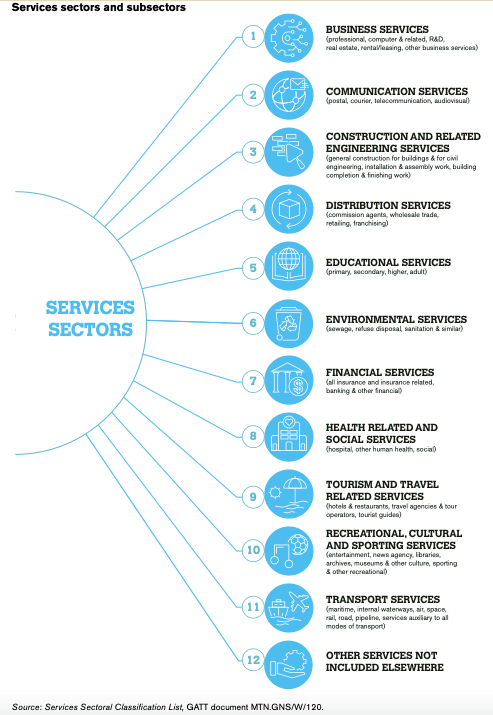
Geneva/New York: While heavily affected by the COVID-19 pandemic, services trade remains the most dynamic component of world trade. The growth of developing economies’ services exports has exceeded the world average over the past two decades, and digitally delivered services have grown at the fastest pace, well ahead of the growth of trade in goods.
Services account for the largest share of global economic activity by generating more than two-thirds of GDP globally and representing 50 per cent of the world’s workforce in 2021. In value-added terms, services account for 50 per cent of world trade.
 However, more needs to be done to fully realize the contribution of services trade to development and services trade policy has an important role to play in reducing trade costs, improving the performance of services, attracting FDI, boosting supply-chain resilience and increasing manufacturing productivity and exports.
However, more needs to be done to fully realize the contribution of services trade to development and services trade policy has an important role to play in reducing trade costs, improving the performance of services, attracting FDI, boosting supply-chain resilience and increasing manufacturing productivity and exports.
In this regard, services trade policies play a key role in strategies to promote development, notes a new WTO-World Bank co-publication launched by the WTO Director-General, Dr Ngozi Okonjo-Iweala, and the World Bank President, Ajay Banga, at an online event today. Pointing out that the growth in services trade has resulted from the interplay of a number of mutually reinforcing factors, the publication notes that these include not only policy reform efforts to make domestic service markets more contestable (e.g. competitive) but also the accelerating pace of technological change.</span
The publication, Trade in Services for Development, looks at how developing economies can fully share in the benefits that services trade brings to their economies and step up their development prospects.
“The single best way to drive a nail into the coffin of poverty is by giving people a job. And in today’s world — and in tomorrow’s economy — delivering jobs means a very sharp focus on services. We need to build the tracks for the services train to run on, to run smoothly, quickly and at scale,” Banga said.
The book points out there is a need to re-ignite international cooperation in the services sector. Such efforts need to expand trade and investment, reduce trade costs, bring about greater transparency and predictability on trade policy regimes and, ultimately, increase the participation of developing economies in policy deliberations and negotiations on services trade. Further, data must be able to move more freely and securely across borders to support digital trade and realize the growth potential for inclusion and jobs.
The sheer diversity of the services sector suggests that policy reforms need to pay close attention to differences in the nature and roles that various services play, in the multiple ways they are traded, in the intensity of the regulatory scrutiny they command, in the broad range of public policy aims their supply pursues and in the political economy forces they put in play.

“The future of trade is services, digital and green — and it must be inclusive. This new publication translates that conviction into a call for action. It documents how services trade has become a key ingredient in our members’ growth and development strategies … including by helping countries diversify and expand their export baskets, making them more resilient to external shocks,” Okonjo-Iweala said.
The publication notes that in the broader context of a “Trade in Services for Development” initiative, an Aid-for-Trade package could help strengthen the participation of developing and least-developed economies in services trade. Scaled-up resources are needed to boost the capacities of developing economies to diversify and expand exports, design and implement services trade reforms and supply competitive services to global markets.
Reviving international cooperation could help to bolster the effective participation of all WTO members in services trade negotiations and increase the transparency and predictability of services trade policies.
The publication also highlights that effective access to traded services — ranging from health and education to finance, transport and logistics services — will be key to advancing the United Nations Sustainable Development Goals.
– global bihari bureau





